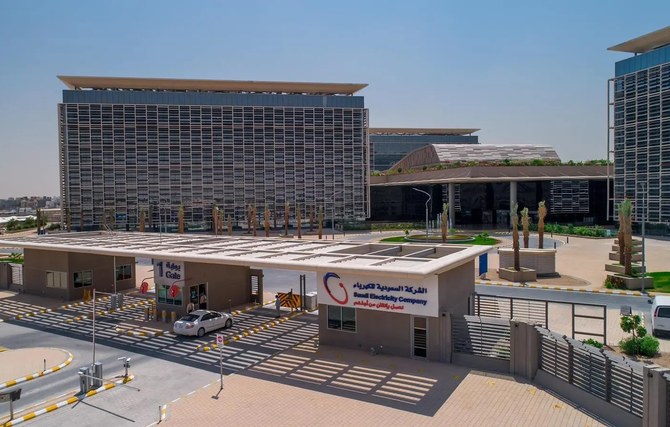WASHINGTON: The House approved a $1.9 trillion pandemic relief bill early Saturday in a win for President Joe Biden, even as top Democrats tried assuring agitated progressives that they’d revive their derailed drive to boost the minimum wage.
The new president’s vision for flushing cash to individuals, businesses, states and cities battered by COVID-19 passed on a near party-line 219-212 vote. That ships the massive measure to the Senate, where Democrats seem bent on resuscitating their minimum wage push and fights could erupt over state aid and other issues.
Democrats said the still-faltering economy and the half-million American lives lost demanded quick, decisive action. GOP lawmakers, they said, were out of step with a public that polling shows largely views the bill favorably.
“I am a happy camper tonight,” Rep. Maxine Waters, D-Calif., said Friday. “This is what America needs. Republicans, you ought to be a part of this. But if you’re not, we’re going without you.”
Republicans said the bill was too expensive and said too few education dollars would be spent quickly to immediately reopen schools. They said it was laden with gifts to Democratic constituencies like labor unions and funneled money to Democratic-run states they suggested didn’t need it because their budgets had bounced back.
“To my colleagues who say this bill is bold, I say it’s bloated,” said House Minority Leader Kevin McCarthy, R-Calif. “To those who say it’s urgent, I say it’s unfocused. To those who say it’s popular, I say it is entirely partisan.”
That divide is making the fight a showdown over which party voters will reward for heaping more federal spending to combat the coronavirus and revive the economy atop the $4 trillion approved last year.
The battle is also emerging as an early test of Biden’s ability to hold together his party’s fragile congressional majorities — just 10 votes in the House and an evenly divided 50-50 Senate.
At the same time, Democrats were trying to figure out how to assuage progressives who lost their top priority in a jarring Senate setback Thursday.
That chamber’s nonpartisan parliamentarian, Elizabeth MacDonough, said Senate rules require that a federal minimum wage increase would have to be dropped from the COVID-19 bill, leaving the proposal on life support. The measure would gradually lift that minimum to $15 hourly by 2025, doubling the current $7.25 floor in effect since 2009.
Hoping to revive the effort in some form, Senate Majority Leader Chuck Schumer, D-N.Y., is considering adding a provision to the Senate version of the COVID-19 relief bill that would penalize large companies that don’t pay workers at least $15 an hour, said a senior Democratic aide who spoke on condition of anonymity to discuss internal conversations.
That was in line with ideas floated Thursday night by Sens. Bernie Sanders, I-Vermont, a chief sponsor of the $15 plan, and Senate Finance Committee Chair Ron Wyden, D-Oregon, to boost taxes on corporations that don’t hit certain minimum wage targets.
House Speaker Nancy Pelosi, D-Calif., offered encouragement, too, calling a minimum wage increase “a financial necessity for our families, a great stimulus for our economy and a moral imperative for our country.” She said the House would “absolutely” approve a final version of the relief bill because of its widespread benefits, even if it lacked progressives’ treasured goal.
While Democratic leaders were eager to signal to rank-and-file progressives and liberal voters that they would not yield on the minimum wage fight, their pathway was unclear because of GOP opposition and questions over whether they had enough Democratic support.
House Ways and Means Committee Chair Richard Neal, D-Mass., sidestepped a question on taxing companies that don’t boost pay, saying of Senate Democrats, “I hesitate to say anything until they decide on a strategy.”
Progressives were demanding that the Senate press ahead anyway on the minimum wage increase, even if it meant changing that chamber’s rules and eliminating the filibuster, a tactic that requires 60 votes for a bill to move forward.
“We’re going to have to reform the filibuster because we have to be able to deliver,” said Rep. Pramila Jayapal, D-Washington, a progressive leader.
Rep. Alexandria Ocasio-Cortez, D-N.Y., another high-profile progressive, also said Senate rules must be changed, telling reporters that when Democrats meet with their constituents, “We can’t tell them that this didn’t get done because of an unelected parliamentarian.”
Traditionalists of both parties — including Biden, who served as a senator for 36 years — have opposed eliminating filibusters because they protect parties’ interests when they are in the Senate minority. Biden said weeks ago that he didn’t expect the minimum wage increase to survive the Senate’s rules.
Pelosi, too, seemed to shy away from dismantling Senate procedures, saying, “We will seek a solution consistent with Senate rules, and we will do so soon.”
The House COVID-19 bill includes the minimum wage increase, so the real battle over its fate will occur when the Senate debates its version over the next two weeks.
The overall relief bill would provide $1,400 payments to individuals, extend emergency unemployment benefits through August and increase tax credits for children and federal subsidies for health insurance.
It also provides billions for schools and colleges, state and local governments, COVID-19 vaccines and testing, renters, food producers and struggling industries like airlines, restaurants, bars and concert venues.
Democrats are pushing the relief measure through Congress under special rules that will let them avoid a Senate GOP filibuster, meaning that if they are united they won’t need any Republican votes.
It also lets the bill move faster, a top priority for Democrats who want the bill on Biden’s desk before the most recent emergency jobless benefits end on March 14.
But those same Senate rules prohibit provisions with only an “incidental” impact on the federal budget because they are chiefly driven by other policy purposes. MacDonough decided that the minimum wage provision failed that test.
Republicans oppose the $15 minimum wage target as an expense that would hurt businesses and cost jobs.
House passes $1.9tn pandemic relief bill, sends it to Senate
https://arab.news/6w6wt
House passes $1.9tn pandemic relief bill, sends it to Senate

- Final passage appeared likely after the measure cleared a procedural hurdle by a partyline vote of 219 to 210.
Saudi Arabia’s NHC signs deal with Chinese company to boost building materials supply

RIYADH: Saudi Arabia’s building materials supply is set to get a boost with the signing of a deal between the National Housing Co. and a leading Chinese construction firm.
The agreement with China’s CITIC Construction Group seeks to establish an industrial city and logistic zones for building materials, comprising 12 factories, with the objective of securing supply chains for the NHC’s housing projects.
NHC CEO Mohammad Albuty finalized the deal during the official visit of Minister of Municipal and Rural Affairs and Housing Majid Al-Hogail to China.
In a statement, the NHC said the agreement with the Chinese construction group are part of its efforts to secure supply chains for its housing projects and ensure their timely completion and high quality.
The Saudi company said the deal entails the construction of 12 factories specializing in building materials, harnessing Chinese expertise, and involving local factories to uplift business standards.
It added that the deal also aims to draw top-tier service providers across various sectors of the company, its subsidiaries, and other projects.
The company pointed out that the agreement is expected to maximize the economic and developmental impact of the real estate sector in the Kingdom, develop housing projects, enhance their quality, and promote national transformation in the construction sector through these industrial cities and logistic zones.
The statement also highlighted that this collaboration will facilitate the expansion of small and medium factories in the Kingdom, establish direct production lines for the company’s projects, and foster the growth of the local industry. Additionally, it will create numerous job opportunities in the sector.
The company said the agreement strengthen the comprehensive strategic partnership between Saudi Arabia and China, established during the Chinese president’s visit to the Kingdom in December 2022.
IMF forecasts $14bn increase in Egypt’s foreign cash revenue

RIYADH: Egypt’s foreign cash revenue is projected to surge by $13.7 billion from five key sources this year, a 14.6 percent increase over last year, according to the International Monetary Fund.
This surge is largely due to investments in the Ras Al Hikma City development deal recently signed by the government with ADQ Holdings, as reported by CNBC Arabia.
The IMF projected that foreign cash inflows from these five sources for the fiscal year 2023-2024 will total around $107.3 billion, compared to about $93.6 billion in 2022-2023.
These sources encompass proceeds from commodity exports, tourism revenues, Suez Canal revenues, as well as private transfers and net foreign direct investment.
Despite expectations of an increase in foreign cash revenue from these sources this year, the IMF anticipates inflows to decrease again in the next fiscal year, dropping below the levels of the previous year to approximately $91.2 billion.
The fund forecasts foreign cash inflows from commodity exports to decline to $33.2 billion during the current fiscal year, compared to $39.6 billion last year, reflecting a decrease of about 16.2 percent, with an expected increase to $35.6 billion next year.
It also predicts a decline in Egypt’s tourism revenues during 2023-2024 to around $12 billion, compared to $13.6 billion in 2022-2023, reflecting a decrease of about 11.8 percent, with an increase to around $12.6 billion in 2024-2025.
Furthermore, the financial agency expects a decline in Suez Canal revenues during the current fiscal year to $6.8 billion, compared to $8.8 billion last year, marking a decrease of about 22.7 percent, with an anticipated increase to around $10 billion next year.
As for net private transfers from abroad, they are anticipated to increase to around $23.1 billion during 2023-2024, compared to about $21.9 billion during 2022-2023, reflecting a 5.5 percent increase, and continuing to rise to $24.6 billion in 2024-2025.
Similarly, net foreign direct investment inflows are projected to surge during the current year to around $32.2 billion, compared to $9.7 billion in the previous fiscal year, marking a 232 percent increase, and then decline next year to $8.4 billion.
SEC closes $3bn financing for 3.6GW capacity power stations

RIYADH: Saudi Arabia’s power generation is poised for a substantial boost following the successful closing of financing for two electricity projects, with a combined capacity of 3.6 gigawatts.
The deals involving the Taiba 1 and Qassim 1 independent power producer projects, with a combined financing value of SR11.4 billion ($3.04 billion), signify a major milestone in Saudi Arabia’s energy landscape, the Saudi Press Agency reported.
The two IPP projects, featuring combined cycle gas turbine technology, were awarded to the Saudi Electricity Co. by the Saudi Power Procurement Co. as part of an alliance with ACWA Power in October 2023.
Additionally, in November 2023, a 25-year power purchase agreement was signed with the SPPC for both projects, which are being developed on a build-own-operate basis.
Khalid Al-Qunun, CEO of SEC, commended the efforts of the company’s team in driving transformation in the electric energy sector in the Kingdom, the SPA report added.
He said: “These projects embody our ongoing ambitions to expand energy generation projects and adopt the latest technologies to ensure the provision of environmentally friendly energy solutions that contribute to achieving the company’s zero neutrality target by 2050, in line with the Kingdom’s ambitious aspirations in the field of energy sustainability.”
The financing agreements were signed by the two project companies: Sidra One for Electricity for the Taiba 1 station and Qudra Energy for the Qassim 1 station. The SEC holds a 40 percent share in both companies.
These modern stations represent a notable advancement in electric energy production in the Kingdom. They signify an important step toward a sustainable future by utilizing the latest energy production technologies, such as combined cycle gas turbines known for their high efficiency.
According to the SPA report, relying on these advanced technologies contributes to improving generation efficiency, reducing emissions, and reducing reliance on liquid fuels in the electricity production sector in the Kingdom.
These stations mark the beginning of a series of CCGT stations that will expedite the realization of Saudi Vision 2030 goals, including achieving an optimal energy mix and increasing local content.
This also sets the stage for achieving the goals of the Saudi Green Initiative, aiming for carbon neutrality by 2060. The engineering design of these stations allows for the future integration of carbon capture facilities, underscoring the SEC’s commitment to environmental, social, and governance responsibility, the SPA report added.
Qatar’s non-energy private sector records improvement in April

RIYADH: Qatar’s non-energy private sector witnesses improvement in business conditions in April as the Purchasing Managers’ Index hit 52, compared to 50.6 in March, according to the latest data.
The Qatar Financial Center PMI is a composite single-figure indicator of non-energy private sector performance that is derived from indicators for new orders, output, employment, suppliers’ delivery times and stocks of purchases. A reading above 50 signifies sectoral expansion, while below that mark indicates contraction.
The latest PMI survey data from the center compiled by US-based capital marker firm S&P Global showed that the 1.4-point increase between March and April in the headline figure was among the largest registered over the past two years, according to a statement.
Moreover, the data disclosed that while output, new orders, employment and purchasing activity all increased at faster rates than in March, price pressures turned slightly negative, as both input and output prices fell marginally.
Additionally, the volume of incoming new business in Qatar’s non-energy economy rose at the fastest rate in seven months in April. This is mainly attributed to new customers and high quality, competitive products.
Total activity also surged at the fastest rate since last September in April as new projects and firms continued to complete existing workloads.
Furthermore, non-energy private sector companies were increasingly optimistic on growth over the next 12 months in April. Companies residing in the Gulf country linked positive forecasts to marketing campaigns, business development plans and efficiency drives.
Consequently, stronger inflows of new work and increased confidence led to a sharper rate of hiring growth in April. Employment has risen for 14 months, and the rate of job creation was running above the long-run survey average in April.
The Qatar PMI indices are compiled from survey responses from a panel of around 450 private sector companies. The panel covers the manufacturing, construction, and wholesale as well as retail and services sectors, and reflects the structure of the non-energy economy according to official national accounts data.
Islamic banking
The total value of the assets of Islamic banks operating in Qatar during the month of March 2024 increased by 6.4 percent on an annual basis to reach about 563.9 billion Qatari riyals ($154.8 billion), according to newly released statistics.
The monetary bulletin issued by the Qatar Central Bank for the month of March showed that this recorded figure represents 28 percent of the total assets of banks in Qatar, amounting to approximately 1.99 trillion riyals.
The data also revealed that the total value of Islamic banks’ financing in Qatar increased to 389.9 billion riyals, an increase of 3 percent over the corresponding month of last year.
Saudi Arabia’s Ades secures $136.2m deals in Qatar, Egypt

RIYADH: Saudi Arabia’s Ades Holding Co. continues to expand its regional footprint as it seals two contracts worth SR511 million ($136.2 million), highlighting its growing influence in the oil and gas sector.
Ades, which specializes in providing drilling and intervention services, signed a contract valued at up to SR350 million with Total Energies to operate an offshore drilling platform in Qatar.
The agreement includes a mandatory one-year period with an option to extend it for up to an additional 18 months, according to a bourse filing.
Operations are slated to begin in the second half of 2024. The company emphasized that there are no related parties involved in this contract.
This contract comes on the heels of April’s announcement, where Ades was awarded the responsibility to operate another offshore drilling platform by Total Energies in Qatar.
This previous contract enables Ades to maintain its market presence robustly, as it will now operate three drilling platforms in the region.
This expansion comes after the company’s strategic move to transfer its Emerald Driller platform to Indonesia.
Moreover, Ades announced in a separate release that it was awarded a 21-month contract to operate an elevated platform in the Gulf of Suez.
The company received a direct award letter from the Suez Oil Co, also known as SUCO, in Egypt, with operations expected to commence in the coming weeks.
In a statement on Tadawul, the company disclosed that the contract is valued at SR161 million.
This new engagement in Egypt is part of Ades’s broader strategy to reactivate its operations regionally. It follows recent contracts in Thailand and Qatar, bringing the total number of reactivated platforms to three out of the five that were recently suspended in Saudi Arabia.
The publicly traded company saw a slight decrease in its stock price after its announcements.














